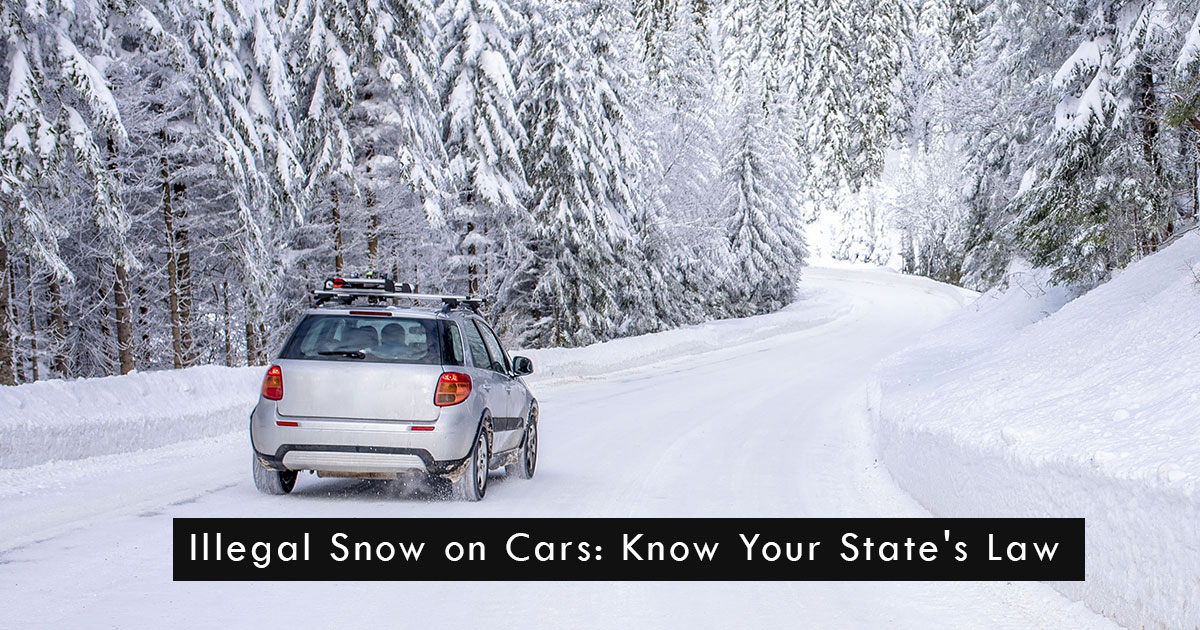Driving in winter brings its own set of challenges, not least of which is dealing with snow accumulation on vehicles. As we navigate through the colder months, it’s crucial to understand the legal implications of driving with snow on your car. This article delves into specific laws from different states to ensure you stay compliant and safe on the roads.
Pennsylvania’s Approach to Snow on Vehicles
In Pennsylvania, the law is clear and stringent when it comes to driving with snow or ice on your vehicle. A relatively new law, effective from 2022, mandates that drivers must remove accumulated ice or snow from their vehicles, including the hood, trunk, and roof, within 24 hours after the snowfall or ice event. Non-compliance can lead to a traffic stop and a fine of $50 for each offense. This regulation is outlined in Pennsylvania’s vehicle code laws, particularly in sections 3721 (Snow and Ice) and 4524 (Windshield obstructions and wipers). The law’s severity escalates if dislodged snow or ice from a vehicle causes injury or death, with fines ranging from $200 to $1,500 per offense.
New Jersey’s Stand on Ice and Snow Removal
New Jersey also takes the issue seriously. The state’s Office of the Attorney General has put forth considerable effort in raising awareness about the importance of removing all ice and snow from vehicles before driving. Failing to do so can attract legal penalties. The state has employed various means, such as distributing informational palm cards and broadcasting public service announcements, to underline the safety risks and legal consequences of driving with snow on your car.
Safety and Legal Implications
These laws are not just bureaucratic red tape. The presence of snow or ice on moving vehicles poses significant risks, including impaired visibility and the potential for accidents due to falling ice or snow. Adhering to these laws is not only a matter of legal compliance but also of public safety. Drivers must be cognizant of these regulations to ensure their safety and that of other road users.
Check Your Local Laws
It’s important to note that laws regarding driving with snow on vehicles can vary from state to state. Thus, it’s crucial for drivers to be aware of and comply with local regulations, especially when traveling to different states during the winter season.
Conclusion
In conclusion, driving with snow or ice on your car can be illegal in states like Pennsylvania and New Jersey, with specific laws in place to penalize non-compliance. These laws are implemented for the safety of all road users. As a responsible driver, make sure to stay informed about your local laws and take the necessary steps to comply, ensuring a safe and lawful driving experience during the winter months.
For more detailed information on the laws and penalties in your state, refer to your local Department of Transportation or equivalent governmental body. Remember, staying informed is key to staying safe and legal on the roads during winter.









Leave a Reply